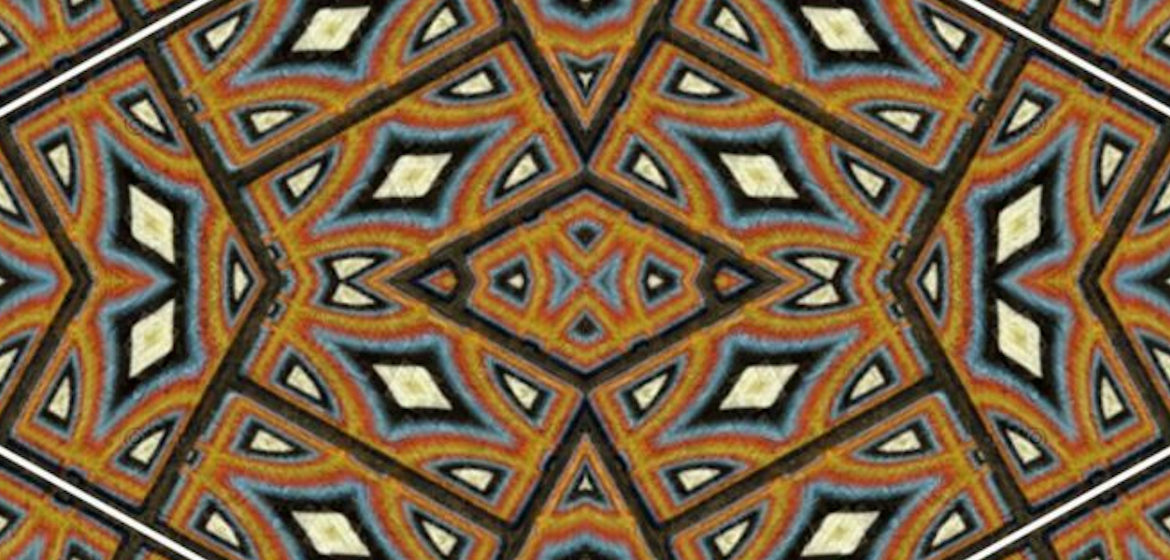
The impact of COVID-19 on higher education in Africa: excerpts of experiences of women in mathematics
By Marie Françoise Ouedraogo, Sibusiso Moyo, Fadipe-Joseph Olubunmi, Entisar Alrasheed, Selma Negzaoui
We are members of the African Women in Mathematics Association (AWMA), which aims at promoting women in Mathematics in Africa and mathematics among young girls. It was established as a non-profit, international and non-governmental organisation in July 2013. One of the activities that the Association engages in is encouraging women to take up and continue careers in mathematics. Furthermore, AWMA provides an engagement platform and network for further cooperation.
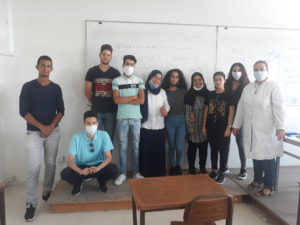
Selma Negzaoui at an AWMA event
However, 2020 has been an exceptional year in terms of the impact of COVID-19. There have been several articles shared on the impact of COVID-19 with different social distancing policies and measures put in place in many countries. Here, we share some common experiences within the higher education sector from women in mathematics – both from a lens of being mothers, researchers and leaders within their governance structures.
The role of higher education within the African context cannot be underestimated, and especially its benefits for improving the social-economic status of many families that invest in educating their children. However, with the social distancing and complete lockdown restrictions in some African countries, the effects of COVID-19 on communities and those who are most vulnerable have been felt across the continent. Student communities have also not been spared the impact of the pandemic, as social distancing measures have ensured that in most cases engagement with students and staff is done via virtual platforms. Below, we share feedback on support, impact and family responsibilities during COVID-19, and we offer advice to younger academics.
Whilst the pandemic brought many challenges especially in communicating with students, the lockdown period provided to someone more time for research. It enabled those women holding busy executive/administrator/academic roles to focus on research and support students. The following feedback was shared from the authors’ experiences:
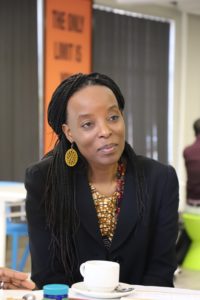
Sibusiso Moyo
“Between April and August 2020, we were able to finalise at least 5 journal articles with my students and collaborators. This has been positive because before the lockdown it was impossible to get time to focus on research due to several meetings which also required travelling nationally. It is hoped that our officials and other sectors we deal with will continue using these platforms to save time and increase efficiency. I believe in our African context, we waste a lot of time travelling for meetings considering that our transportation and infrastructural facilities are not yet advanced enough”.
“The work at my university consists of teaching and research. During the lockdown due to the pandemic of Coronavirus, it was difficult for me to teach but I tried to do research and to follow doctoral students from home”.
“I was able to complete some articles for publication during the lockdown. I had enough time to interact with my postgraduate students online. One of my PhD students was able to complete his thesis”.
Below are shared experiences in trying to balance responsibilities and adjust quickly to the new modes for teaching, learning and research supervision. Young academics have been struggling with how to balance teaching and learning commitments with research. Additionally, some women found it challenging to do their research during the period of the pandemic due to poor technical infrastructure and internet problems.
“The COVID-19 pandemic has had a big impact on my research and academic work. First of all, there was the fear to catch the virus. I was concerned by the propagation of the virus in my country. The first cases appeared in my country on 9th March 2020. A week later, schools and universities have been closed until June 2020. During this period at my University, teachers were asked to provide online resources and experiment with the dissemination of course materials for online teaching and learning on platforms accessible to students, such as WhatsApp or ZOOM. But the confinement has not been very productive for research, because of the work we had to do to keep teaching students in new ways as well as the permanent presence of kids and family at home that we have to take care of”.
“The establishment of a Centre for Open and Distance Learning was on the pipeline in my University before COVID-19. Therefore, the effect of COVID-19 made Universities know that there is a need to have teaching online. As the Deputy Director (Academics), Centre for Open and Distance Learning of my University, I was able to complete the writing of some courseware for the Centre”.
“Sanitary confinement started exactly at spring holidays. University teachers were contacted to start training for using the Moodle platform provided by the virtual university of Tunis (UVT). A considerable number of teachers were involved. Students unions did not accept Distance Learning. So in June, we resumed teaching in-class by sections. We have worked all summer. We finished the 2019-2020 academic year on September, 12. The new academic year started in my institution on September,15. I used the new tools I had started to master during the spring training to supervise my two master students”.
In a recent survey of female staff, it became very clear the challenge of having kids following school from home while parents were expected to attend meetings and teach online at the same time. Families with only one laptop suddenly found they needed more than one to ensure their kids could also attend class. Time scheduling of classes and who uses the device first became a challenge. This points to the fact that in many instances we as a continent were not prepared for this crisis. Secondly, our education systems are not geared for virtual learning and depend only on face-to-face. It is time that our higher education systems learn from the pandemic and invest in adequate infrastructure and resourcing of IT facilities to ensure that our youth and children have access to education despite their social and economic statuses.
“The challenge during the period is that my family spent a lot of money on power for phones and laptops since power is a problem in my country. One had to look for a way of getting power either by using a generator, inverter etc. A lot of money was also used to buy data to get internet for the family because my children participated in some online training and seminars. I participated in some webinars to enhance teaching and research”.
Our advice to younger academics and mathematicians is that equipping oneself with modern technologies and time management are essential for a balanced lifestyle. It is also important to ensure that you are keeping healthy and connected to the scientific community. Stay focused on what needs to be done, lead a balanced lifestyle, stay physically active with a routine of exercise and also learn to help others in mentorship programmes or sharing resources! Become the best version of yourself!
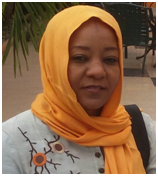
Entisar Alrasheed
Women in academia should look for a way of coping as individuals and try as much as possible to make research and academic work comfortable despite the challenges in internet access and inadequate infrastructural facilities that we have in some parts of Africa. There is a need to participate in online training to build capacity and learn new ways of doing things. Every woman should be determined to cope and have working plans for the family, research and academic work so that no one suffers.
At the time of writing this contribution, on 9th October 2020, the WHO had recorded 36,754,395 confirmed cases of COVID-19, including 1,064,838 deaths. In Africa, there were 1,222,956 recorded confirmed cases. We remember all those families that have been affected by COVID-19 and those that have lost their lives within our communities.
Stay and Keep safe.
Text comment...
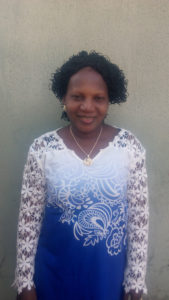
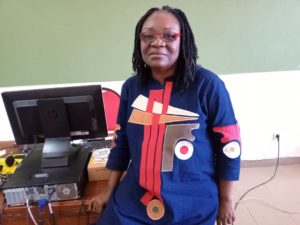
Leave a Reply
You must be logged in to post a comment.